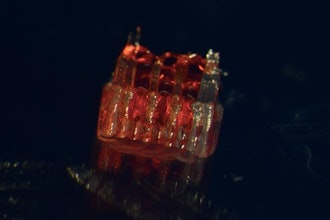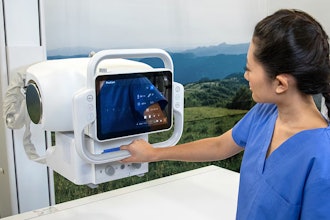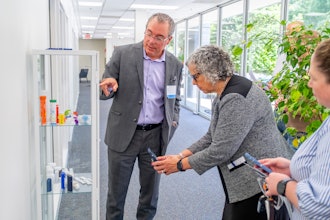Researchers from Harvard University have created a soft, wearable sensor that could help identify developmental disabilities in children born prematurely.
It's common for kids born prematurely to develop neuromotor and cognitive developmental disabilities, but if they are caught early, they can be addressed.
The problem is that they are hard to catch, and the diagnostic equipment can be bulky. This is why researchers developed a soft and light wearable sensor that can attach to a kid’s hand to measure grip strength as well as hand and finger motion.
The sensor is made of a non-toxic, highly conductive liquid solution: potassium iodide, a common dietary supplement, and glycerol, a common food additive.
While it has only been tested on adults, the sensor was designed with children in mind. Kids might be a little more receptive to a small silicon-rubber sensor that sits on top of the finger rather than bulky gloves.
Harvard's Office of Technology Development is currently looking to commercialize the technology, and the researchers now plan on scaling down the device so it can actually be tested on children.






















